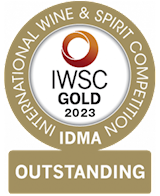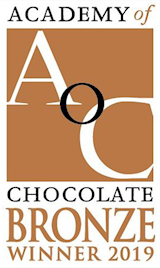TABLE OF CONTENTS
Best Serbian Foods
Pazarske mantije is a Serbian dish originating from Novi Pazar. This dish resembles the Bosnian burek in flavor, but the shape is quite different – it's shaped into small spheres that are arranged in a baking pan and baked together.
The dough is first stretched, brushed with butter, then stuffed with ground beef, salt, pepper, onions, and a bit of oil. Once stuffed, the dough is shaped into small balls, arranged in a pan, then baked, traditionally in old furnaces which give them their unique flavor and aroma.
Mantije are usually accompanied by yogurt that's poured over them and eaten while still hot.
Petrovački kulen is a traditional sausage originating from Bački Petrovac, hence the name. The sausage is made from pork, and the only additions include hot paprika and salt. However, some producers still use garlic and cumin in the production process.
A whole pig is commonly used to produce Petrovački kulen, usually with a ratio of 80% meat to 20% back fat. This meat product has a strong Slovakian culinary influence because they moved to Petrovac in the late 18th century. It's recommended to serve this spicy sausage sliced and paired with homemade bread and local cheese.
OTHER VARIATIONS OF Kulen
This delicacy consists of a traditional flatbread (lepinja) that is cut in half, coated in thick cream (kajmak), and topped with an egg. The combination is shortly baked and should be doused with a mixture of warm meat drippings, which is locally known as pretop.
Komplet can be loosely translated as with everything in it, and is traditionally associated with Užice and Zlatibor. It is believed to have originated sometime before WWII, and the name was officially registered by Dragan Lazić, a current owner of the bakery Kod Šuljage in Užice.
Leskovački roštilj refers to a traditional method of grilling meat which is considered the highest form of barbecue art in Serbia and beyond. Hailing from Leskovac, the technique, according to local belief, is thought to have been brought over from the Caucasus via Turkey, Greece, and Macedonia hundreds of years ago.
Although the exact preparation of the meat remains a secret known only to Leskovac barbecue masters, what is generally known is that the ground mixture traditionally consists of beef that is chopped, ground (first coarsely and then finely), seasoned, and allowed to sit for at least 48 hours before cooking.
Originating from Leskovac, Serbia, leskovački voz is a popular barbecued meat dish that can also be considered a feast. Here's why – it consists of a variety of meat dishes and sides, and each meat dish is followed by another one. Typical dishes of leskovački voz include čevapčići, pljeskavica, stuffed pork loin, leskovački uštipci, mućkalica, and sausages.
The name of the dish means Leskovac train, which only stops once you tell the staff that you can't eat any more. On the side, there is usually lepinja flatbread, gravče na tavče, and various fresh salads.
Užička pršuta is a variety of smoked ham that has been traditionally prepared in the mountainous district of Zlatibor, namely in Čajetina, Užice, and Nova Varoš municipalities. This meat specialty came to be known as užička pršuta because it used to be sold in Užice along many other regional products at the time.
Beef, pork, and mutton can be used for the preparation of this meat product, although the most traditional is smoked beef meat, which is known as užička goveđa pršuta in Serbia. The finest beef pieces from parts of the legs, tenderloins, sirloins, and the low end of the back of 4 to 6-year-old oxen are salted, then smoked with dry beech wood, and dried in the cool mountain air.
MAIN INGREDIENTS
One of the staples of traditional Turkish cuisine, sarma consists of a filling that is snugly surrounded by leaves or leafy vegetables. There are numerous versions of this dish but the mixture typically combines ingredients such as minced meat, rice or bulgur, various herbs, seasonings, red pepper, paprika, ground sumac, or tomato sauce, while the typical wrapping usually includes vine, cabbage, or sauerkraut leaves, or a variety of leafy vegetables such as collard greens and swiss chard.
Having its roots in the Ottoman Empire, sarma is also traditionally consumed in the Balkans, the countries of Central Europe, the South Caucasus, and the Middle East. Although it is commonly enjoyed as a filling lunch or dinner (typically during the winter season), sarma is often prepared on special occasions and holidays.
MOST ICONIC Sarma
View moreMAIN INGREDIENTS
Burek sa sirom is a phyllo pastry that is round or coil-shaped and filled with a mixture of cheese and eggs. The dough is made with flour, salt, and water (and perhaps a bit of oil) and stretched into translucent sheets. The sheets of phyllo dough are stacked in a large tray, and each sheet is sprinkled with oil or oil and mineral water and spread with the cheese and egg filling.
Still, you might have heard that burek can only be called burek if it's filled with meat. That is, if you live in Bosnia and Herzegovina, but not everyone does, nor is burek really Bosnian – in fact, it has Turkish origins. In Bosnia, burek (with meat) and other types of similar pies such as sirnica (cheese) and krumpiruša (potatoes) are usually rolled into a coil, while Croatians and Serbs have a more relaxed approach – burek can be round and cut into quarters, or rolled into a coil – both shapes are good, and both can be called burek sa sirom (when filled with cheese, of course).
MAIN INGREDIENTS
Pörkölt is Hungary's national stew, its name derived from the word pörkölni, meaning to roast or singe. The stew is made from meat such as beef, lamb, pork, or chicken, simmered in a red sauce with lots of onions, garlic, and paprika powder.
It is traditionally served with dumplings, boiled potatoes, or pasta, and it is recommended to pair it with a Hungarian fruit brandy. Pörkölt's history is closely linked to the traditional Hungarian goulash, as both dishes were originally prepared as peasant meals that made hefty use of powdered paprika.
VARIATIONS OF Perkelt
Bela čorba is a traditional soup that's popular in Serbia. It's made with a combination of chicken breast meat (locally called belo meso), eggs, potatoes, onions, flour, carrots, parsley, and seasonings. Some versions also include a scoop of sour cream that's added to the plate when the dish is served.
This soup is traditionally eaten as a first course, but during the summer it can also be served as the main course for lunch. If it's prepared as the main course, the dish will contain more potatoes and it will usually be served with a fresh cabbage salad on the side.
TABLE OF CONTENTS
Best Serbian Food Producers
AWARDS

World's Best Fruit Brandy - Winner
2022

World's Best Steinobst - Winner
2022
BEST Sena Spirits Spirits
AWARDS

IWSC- International wine & spirit competition - Spirit Gold
2024, 2023

IWSC- International wine & spirit competition - Spirit Gold Outstanding
2023

IWSC- International wine & spirit competition - Brandy Gold Trophy
2023
BEST Podrum Palic 1896 Spirits
AWARDS

IWSC- International wine & spirit competition - Spirit Gold
2024
BEST Gorda Spirits
AWARDS

IWSC- International wine & spirit competition - Spirit Gold
2024
BEST Mali Podrum Vukojicic Spirits
AWARDS

IWSC- International wine & spirit competition - Spirit Gold
2024
BEST Emperus Distillery Spirits
AWARDS

Academy of Chocolate - Bronze
2019
BEST Réel Chocolate Chocolates
AWARDS

IWSC- International wine & spirit competition - Spirit Gold
2020
BEST Vitin Fruits Spirits
TABLE OF CONTENTS
Best Serbian Food Products
AWARDS

IWSC- International wine & spirit competition - Spirit Gold Outstanding
2023

IWSC- International wine & spirit competition - Brandy Gold Trophy
2023
AWARDS

World's Best Fruit Brandy - Winner
2022
AWARDS

World's Best Steinobst - Winner
2022
AWARDS

World Gin Awards - Country Winner
2022
AWARDS

IWSC- International wine & spirit competition - Spirit Gold
2024, 2023
AWARDS

IWSC- International wine & spirit competition - Spirit Gold
2024
AWARDS

IWSC- International wine & spirit competition - Spirit Gold
2024
AWARDS

IWSC- International wine & spirit competition - Spirit Gold
2024
AWARDS

IWSC- International wine & spirit competition - Spirit Gold
2024
AWARDS

IWSC- International wine & spirit competition - Spirit Gold
2023
TasteAtlas food rankings are based on the ratings of the TasteAtlas audience, with a series of mechanisms that recognize real users and that ignore bot, nationalist or local patriotic ratings, and give additional value to the ratings of users that the system recognizes as knowledgeable. For the “Top 70 Serbian Foods” list until April 20, 2025, 5,740 ratings were recorded, of which 3,321 were recognized by the system as legitimate. TasteAtlas Rankings should not be seen as the final global conclusion about food. Their purpose is to promote excellent local foods, instill pride in traditional dishes, and arouse curiosity about dishes you haven’t tried.






























































